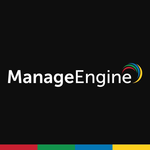I have some experience with the solution, since I am working with customers who are interested in part time help monitoring their network and have been helping them fine-tune the rules in the solution's platform. The way the primary task works is to watch for and then respond to the threat. Should there be a need, I usually work with a team in fine-tuning the rules on this platform. We are providing the products.
I recently started working primarily on the Playbooks of the Splunk Phantom, so I've been creating some of these to help the customer automate the process of responding to the threats.
What is nice about the solution is that it makes it easy to build the queries, search for the events and then do analysis. I recently have become involved in the Playbooks, since it is painful for the client to respond to the threat, be it positive or negative. As such, I currently see the Phantom component of the solution to be of great value. Otherwise, most other features seem to be similar to Netwitness, such as the monitor log, network, and endpoint capabilities. Importantly, the solution lacks endpoint options, as these are currently deployed on Cisco, which is okay, as it works fine with that bad side of the endpoint security. This translates into them building queries, rules and then Playbooks.
The main advantage of the solution is that it provides an easy setup platform in the new environment. When set up afresh, it is also easy to build queries. Historical queries can be used to site for a new event, which makes it easy to use, deploy and understand.
Endpoint access is the only issue I can think to mention, even though the endpoint access we have with Cisco is fine.
I have been engaged in the production environment of Splunk for around a year and have been reading up on it for a long time.
I would rate Splunk as one of the big five platforms. I would give it a high rating based on the efficiency of the platform.
Splunk allows one to easily scale up this platform. One can add more interfaces to that platform if he gets more data.
I usually rely on the Splunk community for information, such as discussions of incidents and other issues which others are facing. I feel the Splunk community to be an excellent source of information for me.
Out of the three platforms I have been dealing with, I feel the initial setup of Splunk to be the easiest. I found it a bit difficult to set up a new environment with RSA Netwitness. Splunk, on the other hand, I have found to be very straightforward and an uncomplex platform.
I have been proposing to management to take the solution to be a primary product in our dealings with it. We do not encounter many issues involving the solution. One of the problems I have with the RSA Netwitness platform is its complexity. Splunk is straightforward for us when it comes to views and it provides us the network security posture.
The ability for the solution to work with Cisco shows that the solution can work with other products. The only thing is that when the solution is compared with other vendors, one sees that there is only a single other vendor that has endpoint security like this one, Netwitness platform having its component for the endpoint. This is why an integrated endpoint would be a nice feature, even though the solution works on Cisco.
The main advantage of the solution is that it provides an easy setup platform in the new environment. When set up afresh, it is also easy to build queries. Historical queries can be used to site for a new event, which makes it easy to use, deploy and understand.
When it comes to a data platform, there is RSA NetWitness, which may also be a good platform. I have not done much training of my own on Splunk, but have gained much experience through learning and working with clients that I support. This is because the platform is understandable.
I would rate Splunk as one of the big five platforms. I would give it a high rating based on the efficiency of the platform. Clearly, I cannot include Wazuh in the top five categories, as its rating is not up there with Splunk, Qradar and LogRythm.
I cannot think of anything disadvantageous about Splunk, as we are talking about a product that I like. I feel the solution has beautiful features.
The decision to go with Splunk would depend on the business needs of the individual. I know that Splunk has both a cloud and an on-premises option. Sometimes, such as when it comes to conferences, there is no need to move some of the data to the cloud for the purpose of complying with regional requirements. There may be a need to retain some of it and a person might wish for a mixture of on-cloud and on-premises capabilities.
I rate Splunk as an eight out of ten. It is a robust platform and easy to use.





















